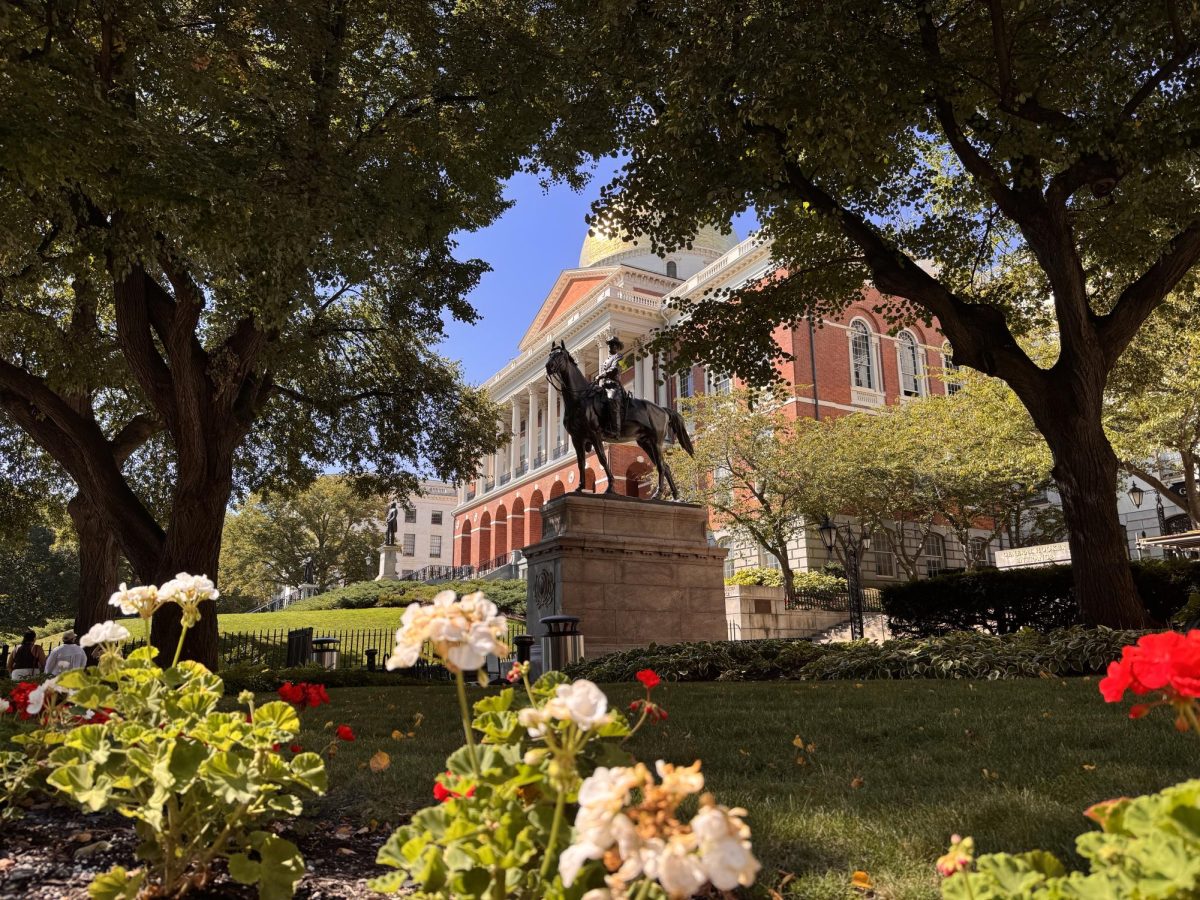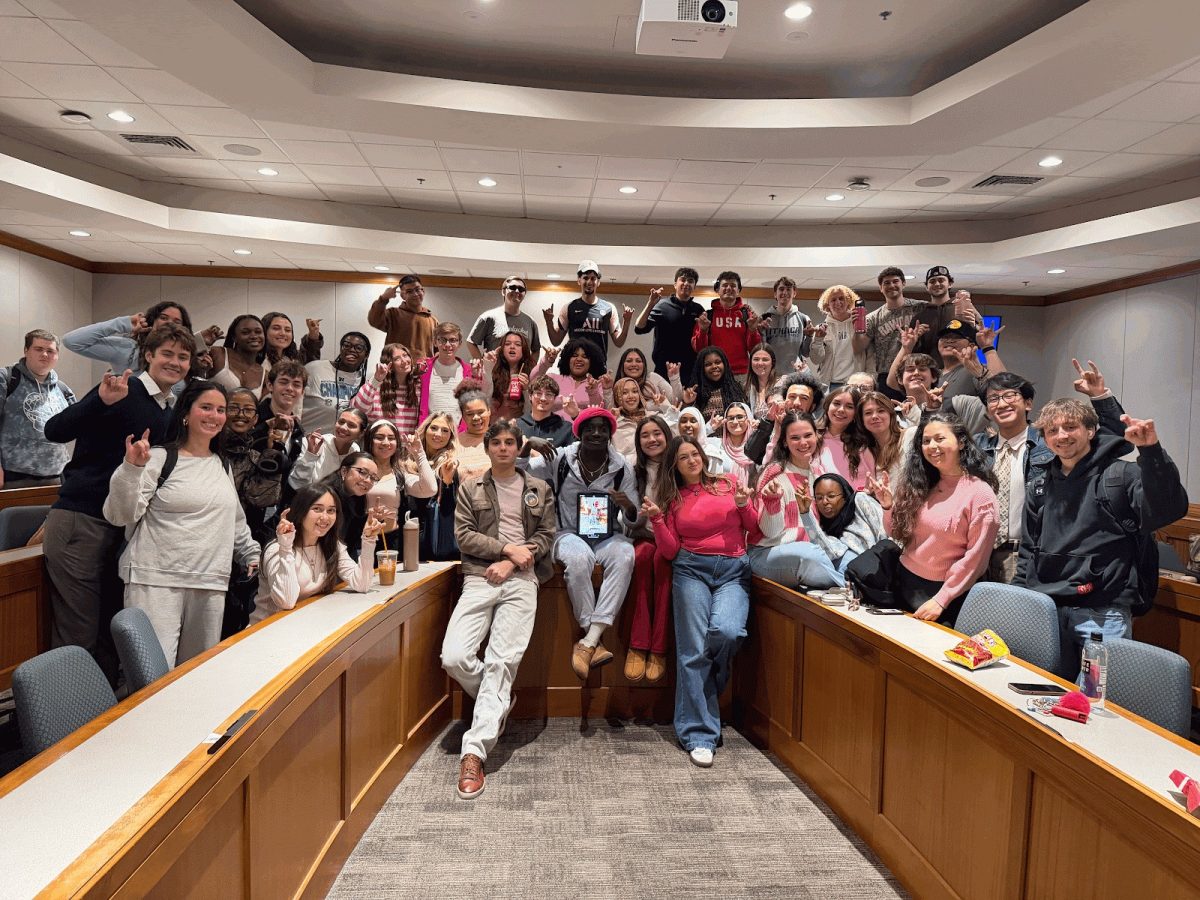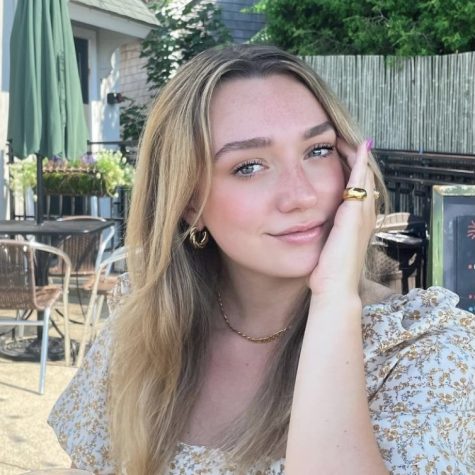Kathy Maloney, associate director of the Performing Arts Office at Suffolk University, has traveled across the world as an attendee, volunteer and employee at every Olympic and most Paralympic Games since 1996.
“As long as I can remember, I used to stay up late watching the Olympics on TV … I was always intrigued by the games,” said Maloney.
Maloney found herself unexpectedly stumbling into a seat at the 1996 Olympic Games in Atlanta, Georgia– the first time she had ever seen the games first hand. After getting a ticket from a friend and booking airfare last-min- ute, she sat in the stadium and watched the women win gold in gymnastics, falling in love with the games even more.
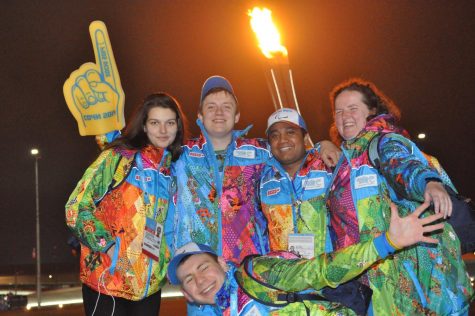
“It is impossible to describe having 10,000 people cheering and chant- ing and being at the home team,” Maloney said. “That was pretty phenomenal.”
After attending the 2004 Athens and 2008 Beijing games as a spectator, Maloney found herself working at the 2010 Olympic and Paralympic games in Vancouver, Canada.
Her first experience with the Paralympics, which she didn’t know much about beforehand, was in Vancouver. She volunteered in event services and handled what she called the ”face of the games.” She collected tickets, checked IDs and cheered on attendees as they climbed up the mile- long mountain at the cross-country and biathlon venue, where she was stationed.
“It was really life changing,” said Maloney.
After not being chosen as a volunteer for the games in London, Maloney did not give up. Her pas- sion for the games got her hired as an employee for event services.
“It was fun and it was interesting. You get to see the inside workings of the games. I learned a lot about things you don’t even think about and how it all works which is really cool,” said Maloney.
In the Sochi, Russia 2014 winter games, she ironically found herself working in the curling stadium a Canadian sport she teased the locals about when she was working at the Vancouver games. She worked at the information desk and helped guide spectators to their seats.
She found it very frustrating, but culturally educational, as she struggled to help those who only spoke Russian or languages besides English. She wanted to be able to communicate with the people in the same way she did in Vancouver, where she had a very similar role.
She said she was extremely relieved when she saw a couple of people walk past her with “Team U.S.A” written on the back of their jackets.
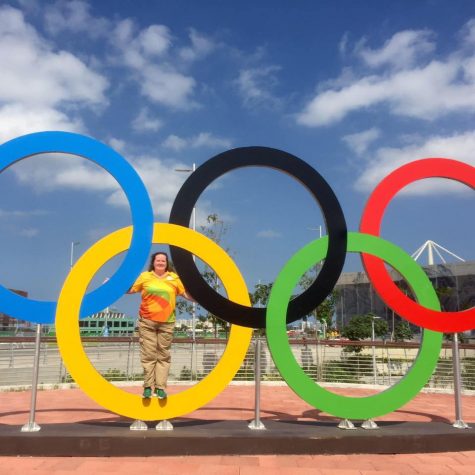
“I said ‘Howdy’ and they said, ‘That does not sound Russian’ and I was like, ‘No it’s Boston.’ Those people were the team U.S.A. assistant coaches and one of those assistant coaches was from Falmouth and two of the members of the U.S. wheelchair curling team were from Falmouth – and long story short, I am a curler now and I curl out of Falmouth,” said Maloney.
After her time in Sochi with Team USA, Maloney has become extremely interested in curling. When she is not curling herself, she works with the wheelchair curling community in Falmouth.
At the 2016 summer Olympics and Paralympics in Rio de Janeiro, Brazil, Maloney was working behind-the-scenes at the basketball venue; a very different experience from her prior roles. She worked less with people, and out of the view of the public. However, she was able to work less and watch the games more as a spectator, which she really enjoyed.
She worked in the hockey stadium in the athlete’s lounge during her time in PyeongChang, South Korea, where the winter Olympic and Paralympic games were held in 2018. In the lounge, the team members and coaches would come to relax and eat between the competitions. She was responsible for giving information and supplying teams with anything that they needed.
“I set up birthday celebrations for the athletes for the time that we were there, just to make people feel like there was someone looking at them beyond them being an athlete,” said Maloney.
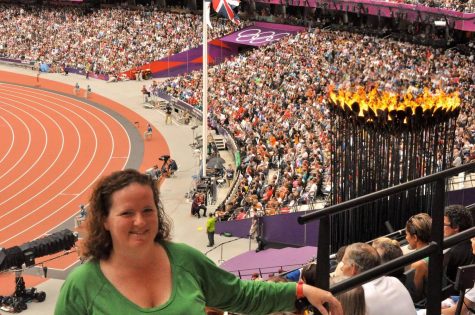
She was not chosen to work at the upcoming Tokyo 2020 summer games, but she is look- ing forward to traveling around Japan and watch- ing the games before getting ready for the fall at Suffolk.
She has also fallen in love with the Paralympics, and all they stand for.
“The games themselves are just a human positive experience. Politics, I’m sure, are around, but it’s not really prevalent. In Sochi, there were terrible things happening not very far from where we were and none of that filtered into the games. People focused on the people and the sport and the commonalities as opposed to the differences,” said Maloney.
Maloney said she has had an amazing, transformative adventure through her travels.
“At the London games, I had the opportunity to see one of the team’s first female athletes ever in the games,” Maloney said. “She was in one of the trial qualifying rounds, and she was basically like a lap behind everyone. But the entire stadium was on their feet cheering for her that entire lap and every- one was just there for her and everyone was just so excited for her and for all that stood for.”
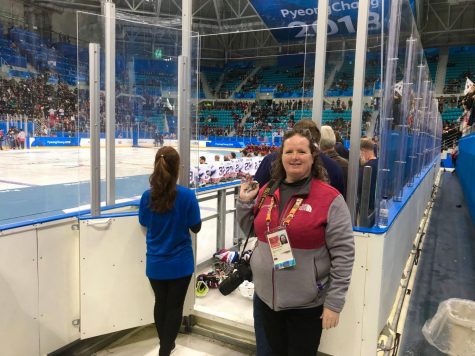
She is disappointed in the way that the U.S. does not equate the achievements of Paralympians to those of Olympians. She blames this on the lack of media coverage the Paralympics has gotten compared to the Olympics. News channels, such as NBC, have given the Olympics about 850 hours of coverage while only giving the Paralympics 50 hours.
“There is a [Paralympian] on the sled hockey team that has four successive gold medals, but the U.S. doesn’t see that because they only see them as the other athletes that happen afterward,” she said.
She recognizes that the U.S. is taking steps toward making both games equally important. Maloney hopes the U.S. can learn to appreciate the Paralympics in the same way they appreciate the Olympics after they have the opportunity to experience the Los Angeles games.
From her experience, she has become inspired to get more involved with paralympic sports. She has made a connection with Adaptive Sports New England, a Paralympic sport club in Boston, and volunteers with their swim team as they work for races.
“I feel pretty lucky that the games have given me exposure to people and to sports, to things that I don’t know. The skill sets that I now have allowed me to work with them,” said Maloney.


